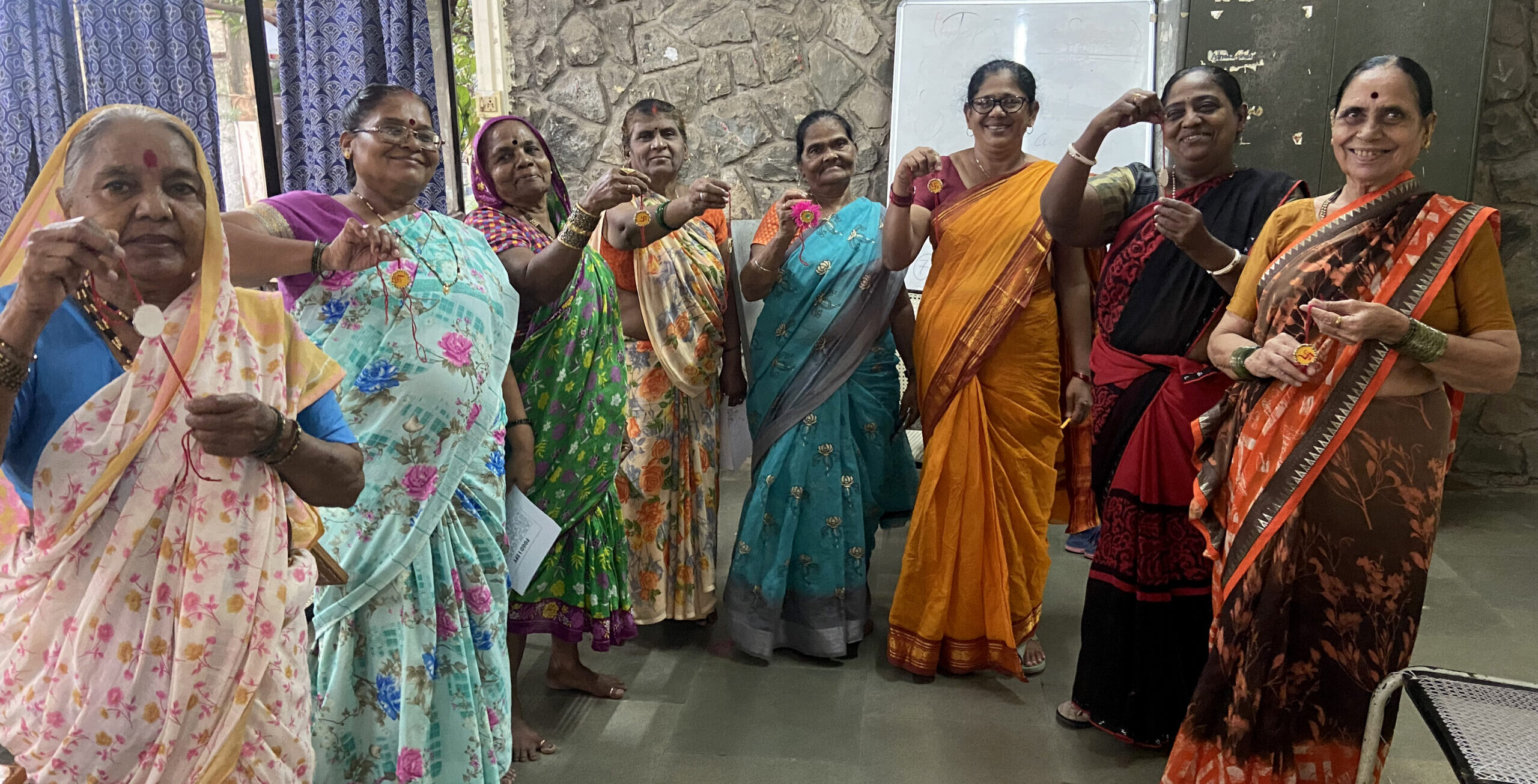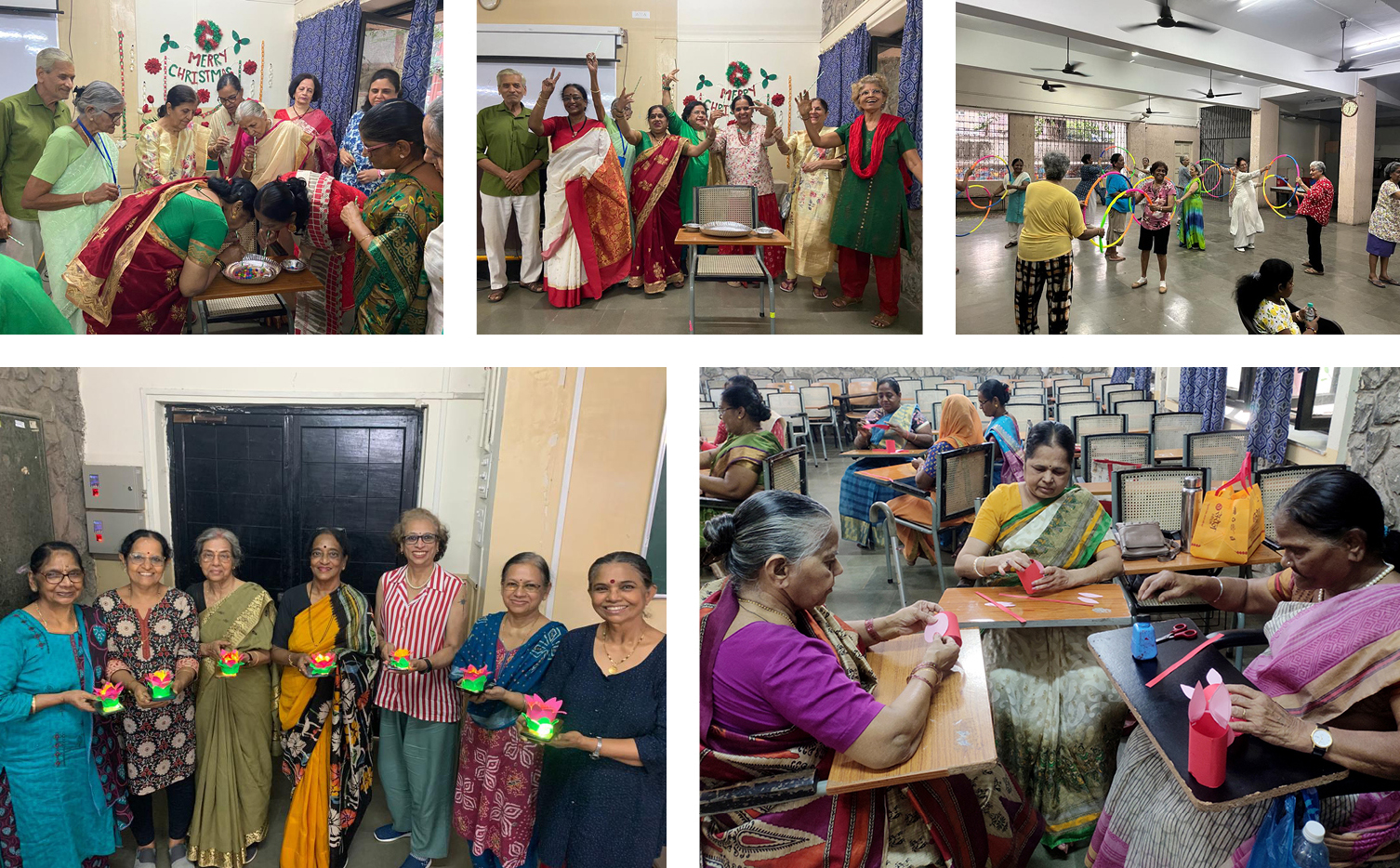Best Practice in Mumbai, India
Solving the Challenges of Dementia Care in India
Clara D’Souza, Operations Manager, Spark of Life Master Practitioner, Adhata Trust, Mumbai, India
14th March, 2024
Dementia in India
India has the largest population in the world, with more than 1.43 billion people. Of this, 8.6% or 104 million are 60 years old or over.
India houses the second the greatest number of individuals with dementia with an estimated 4.1 million people diagnosed as per the ‘Dementia India’ report published by the Alzheimer’s and Related Disorders Society of India, making dementia a significant public health issue.
There is a very low awareness of dementia in our country and limited research on the subject. Memory loss is usually associated with ageing, and dementia is considered as a taboo subject in the community, and a part of misunderstanding mental health issues.
There are very few providers in India working towards remedial programmes for dementia. In recent times, only a few organisations have initiated such services for dementia which can be assessed only by the affluent class of the society. The rest of the population are cared at home with the help of carers.

Providing Best Practice in Mumbai: Adhata Trust
Adhata Trust is a private social enterprise which is funded by the Trustee and there are no contributions from the members (clients with dementia). The members registered at the 14 centres are from different class and caste. Irrespective of their cultural background, they come together to participate as a group of individuals with the need for care and compassion. Majorly, an after effect of the pandemic is the growing need to address their mental health due to loneliness.
It was an empowering experience to introduce the Spark of Life Model of Care at Adhata Trust, to practice this ideology for moving from the society’s perception of disability to ability. Every member of this service is now working towards adding quality of life to the elderly.
The model enables staff to practice humanised connections with our clients who have dementia. This helps to build a strong bond of togetherness which motivates the staff to be more creative and in turn remain attached to our service. Each member with dementia coming to all 14 centres are welcomed with smiles and a personal greeting. The trained Coordinators experience the joy of having the elderly with them and for the members it is an unconditional bond of love and belongingness. The Spark of LifeEducation has had a great impact on the approach of the staff as well as their understanding of dementia.
As a Master Practitioner, learning continues through their various modules designed by Dementia Care International to enhance our skills further. At the beginning of the year, the first module was on an innovative method of Goal Setting, which I found a valuable tool to segregate our goals for long and short term. It highlighted on how to remain focused on our goals and to prioritise our work. A strong and encouraging line taught is that the Master Practitioner is a catalyst of inspiration for the team to go beyond the status quo and awaken a desire to bring positive change, to be driven by a passion for change, and with an optimistic perspective.

Conclusion and recommendations
Dementia care in India needs a transformation of care, increased awareness and diagnosis to understand about the condition. Investment in specialised education is required for families and caregivers. Increasing dementia awareness among both medical professionals and the general public is essential, and there is a need for separate health centres for dementia care.
I call on the Government and policy makers to provide funds for healthcare services to have access to the Spark of Life Model of Care, to solve many of the challenges currently faced in India by dementia. Funding the training of skilled ambassadors of change to bring in the Spark of Life Model of Care will assist India to build an inclusive society where people with dementia have an enhanced quality of life.
